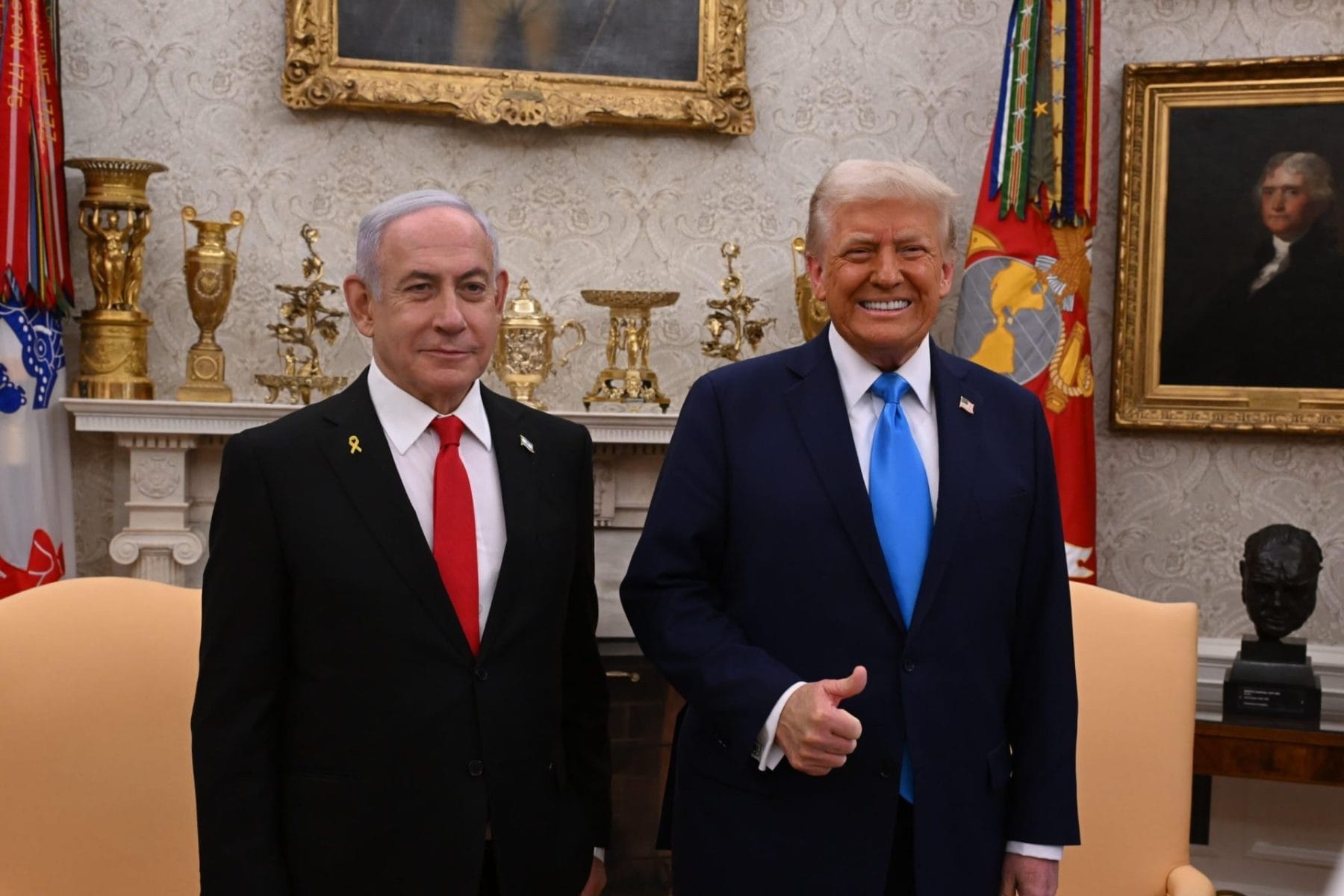Bucharest Calling: MAGA goes on tour
“Russia rejoices,” wrote the pro-European Polish Prime Minister Donald Tusk on X this week. He was referring to a joint appearance onstage in Warsaw of George Simion, the far right presidential candidate in Romania, and his Polish equivalent Karol Nawrocki just days before elections in both countries.
On May 18, Romanians will vote in the second and final round of elections to pick their president, with Simion, a decisive first round winner, the favourite, albeit current polling shows he is running neck-and-neck with his opponent Nicusor Dan, the relatively liberal current mayor of Bucharest. Also on that day, the first round of Poland’s presidential elections will take place. Nawrocki, analysts suggest, is likely to lose to the more liberal Warsaw mayor Rafał Trzaskowski.
But Simion’s appearance in Warsaw did cause anger, with one Polish member of the European parliament describing both candidates as representatives of “Putin’s international”. Simion denies being pro-Kremlin, but wants to stop military aid to Ukraine. An ultranationalist, he promotes the rebuilding of a greater Romania, raising the prospect of potential territorial disputes with Ukraine, Moldova, and Bulgaria. Indeed, he is already banned from entering both Moldova and Ukraine.
Rather than Russia, the association Simion prefers to acknowledge is with Donald Trump and MAGA. As he said of his visit to Poland and support for Nawrocki, “Together, we could become two pro-MAGA presidents committed to reviving our partnership with the United States and strengthening stability along NATO’s eastern flank.”
Certainly, Simion’s MAGA love was on show during the first round of Romania’s election on May 4, and MAGA reciprocated that love.
At the party’s Bucharest headquarters, on a warm, triumphant election night, with Simion having won over 40% of the votes, a MAGA hat-wearing American took to the podium. He asked the cheering crowd if they wanted their own "Trump hat", and threw one (and only one) towards a section chanting "MAGA, MAGA, MAGA." Brian Brown, a prominent conservative activist, was in his element, expressing solidarity with jubilant Simion supporters.
"You, my friends," he said, "are in the eye of the storm. What happens in this country will define what happens all over Europe. And Americans know it and more and more are waking up to the truth that we must stand together. We must never be silenced." Meanwhile, a protester screaming “fascists” was quickly removed.
Brown, who leads the anti-LGBTQ group International Organization for the Family and has been described by human rights organizations as an "infamous exporter of hate and vocal Putin supporter," was celebrating a seismic political shift. In response to Simion’s large first round victory, Romania's prime minister resigned. His own party's establishment candidate didn’t even make it to the May 18 second round.
Simion, a 38-year-old Eurosceptic and self-described "Trumpist," had founded his far-right nationalist party, Alliance for the Union of Romanians (AUR) just over a decade ago. At the AUR offices on election night – with Simion himself only appearing by video – Brown drew explicit parallels between Romania's situation and that of America, extolling the "friendship of true Romanians and true Americans, people that stand together against a lie." Right wing leaders in other countries echoed the sentiment. Italy's deputy prime minister Matteo Salvini, for instance, declared on social media that Romanians had "finally voted, freely, with their heads and hearts."
Romania's election became a right wing cause célèbre after the Constitutional Court annulled the presidential polls in December last year, ruling that it had been vitiated by a Russian influence operation. U.S. vice president JD Vance accused Romania of canceling the election based on “flimsy suspicions” and Elon Musk described the head of the Constitutional Court as a “tyrant”. This is why MAGA supporters took a keen interest in the May 4 do-over. It was, according to Brown, a litmus test for freedom, for the voters’ right to choose their president, no matter how unpalatable he might be to the establishment.
In November, 2024, far-right candidate Călin Georgescu won the first round of Romania’s presidential elections. The polls were scuppered though after intelligence revealed irregularities in campaign funding and that Russia had been involved in the setting up of almost 800 TikTok accounts backing Georgescu’s candidacy. He was also barred from participating in the rerun.
Distrust and disapproval of Romania’s political system have been growing ever since. When I got to Bucharest, my taxi driver, the first person I met, told me he wouldn’t even bother voting in the rerun. The ban on Georgescu was portrayed in right wing circles as anti-democratic. And the support he received from leading Trump administration figures such as Vance was in keeping with their support for far-right parties across Europe.
Before Friedrich Merz won a contentious parliamentary vote to become German Chancellor, U.S. Secretary of State Marco Rubio said Germany was a “tyranny in disguise” because its intelligence services classified the anti-immigration AfD, now Germany’s main opposition party, as “confirmed right wing extremist[s].” Vance said the “bureaucrats” were trying to destroy “the most popular party in Germany.” It proved, he added, that decades after the West brought down the Berlin Wall, the German establishment had “rebuilt” it. The outspoken nature of this intervention in the internal politics of an ally shows that the Trump administration would rather maintain ideological ties with far-right parties in Europe than follow traditional diplomatic protocols.
Simion, for his part, has said that he’s a natural ally of the U.S. Republican Party, and that AUR is “almost perfectly aligned ideologically with the MAGA movement.” Just two weeks before the Romanian elections, Brian Brown met with Simion and his wife in Washington, D.C., with both men propagating their affinity to “the free world” and “Judeo-Christian legacy” in an Instagram video. Simion is also currently being scrutinized over attempts to hire a lobbying firm in the U.S. for $1.5 million to secure meetings with key American political figures and media appearances with U.S. journalists.
In Romania, the president has a semi-executive role that comes with considerable powers over foreign policy, national security, defence spending and judicial appointments. The Romanian president also represents the country on the international stage and can veto important EU votes – a level of influence that might be considered handy on the other side of the Atlantic too.
The fact that both U.S. and other European far-right leaders came in person to offer their support to Simion after the first round of the election, or paid obeisance online, shows how it’s becoming increasingly important for the far-right to to be seen as a coherent, global force. As Brown put it in Bucharest: “We need MAGA and MEGA. Make America great again. Make Europe great again.”
With Canada and Australia swinging to the center-left in their recent elections – in what many have called “the Trump slump” – the Romanian election offers Trump and MAGA hope that it can continue to remake the world in its own image. The irony is that MAGA, with its global offshoots, is arguably the most effective contemporary international solidarity movement, despite railing against globalism and being so apparently parochial in its outlook.
A version of this story was published in last week’s Coda Currents newsletter. Sign up here.
The post Bucharest Calling: MAGA goes on tour appeared first on Coda Story.





